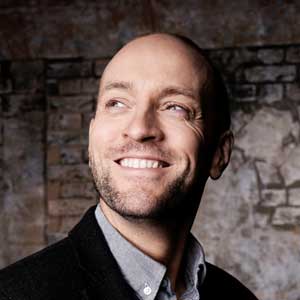'The stories I want to tell you will light up part of my life, and leave the rest in darkness," announces the narrator of this fragmented text. "You don't need to know everything. There is no everything. The stories themselves make the meaning."
The statement serves not only as a framework for Jeanette Winterson's latest oeuvre but as her general manifesto. Her preoccupation is with the nature of storytelling and its duty which is to capture reality. Like life, like the universe itself, stories repeat and reflect, overlap and merge. As the lighthousekeeper explains: "There's no story that's the start of itself, any more than a child comes into the world without parents."
The lighthousekeeper is blind and his name is Pew, the narrator is an orphan girl he has taken in, and they live in Cape Wrath, a barren rock of a Scottish coastal town where nothing grows. By now you should be beginning to grasp the weight of symbolism and referencing that makes this less of a novel, more of a prose poem. It's told in a series of episodic bursts that connect at points then disperse, flashing across a literary landscape that includes fairy tales, myths, children's stories and nineteenth century classics.
For a start, there's the relationship between the luckless Silver and her unlikely protector who cooks only sausages and houses her in "a tiny room with a tiny window, and a bed the size of a drawer." Think Heidi, think Silas Marner, think The Old Curiosity Shop. Even more, think Roald Dahl's Charlie and his special relationship with his grandfather, who is so poor he has to share a bed with three others.
Pew, being blind, is the only one who can really see a kind of Treasure Island meets Tiresias. His, naturally, is the true light, the one that saves ships from floundering against the rocks. It's the light of stories which illuminate and show you the way.
Winterson is very big on opposites. Silver's story is interwoven with that of an earlier resident of Cape Wrath. Babel Dark, whose father built the lighthouse in the early 1800s, is an upstanding cleric when at home with his neglected wife. Twice a year he comes to life when he visits his secret second wife in Bristol, using the pseudonym Lux. Geddit?
Torn between duty and desire, repression and freedom, Dark is perplexed when Robert Louis Stephenson, wise to his double life, explains that The Strange Story of Dr Jekyll and Mr Hyde could really apply to all of us. Dark isn't sure which of his two selves is the more wicked. He is also wracked with doubts about the origins of the universe.
Fortunately, help is on hand in the form of Charles Darwin who visits Cape Wrath to see the fossils which, with their layers, folds and imprints of past organisms, are receptacles for memories and stories. Darwin does his best to put the tortured priest straight about the formation of rocks and the beginning of time. Dark, being an Anglican, wants history to be explained in a straight line. But evolutionists know better, just like storytellers. As the author is quick to remind us: "The continuous narrative of existence is a lie. There is no continuous narrative, there are litup moments, and the rest is dark."
Which, frankly, is hardly a startling revelation. And that, for me, is the faultline cracking through this uneven work. It would be easier to accept Winterson's splintered narrative, her riot of metaphors and intertextual foreplay, if the concepts contained were more profound. But this is wearily familiar territory, however artfully packaged.
Yet, as so often happens with this provoking writer, you can at one moment be irritated by her selfconscious stylising, the next pierced by a shaft of breathtaking prose, as when Silver imagines Captain Scott freezing to death:
"Not earthbound any more, he could wing the dogs in a windruff of fur, huskyhaloed through two miles or so of gravity, then out, free, barking at the moon, halfwolf, halftame, going home to the white planet he had seen shining in their orange eyes, paws hockdeep in snow."
Like many contemporary feminist thinkers, Winterson is alive to the power of fairy tales. "There's always a woman somewhere, child; a princess, a witch, a stepmother, a mermaid, a fairy godmother, or one as wicked as she is beautiful, or as beautiful as she is good." So her heroine begins as the deserted changeling waiting to be rescued, and goes through cycles of wickedness and distraction before finding her destiny.
The problem here is that Silver herself and the mythical characters she encounters never come to life. They are ciphers, representing polarities in a fairytale landscape with a fairy tale morality. All that really matters, apparently, is love. Actually. Characters without love are shrivelled and half alive. Those who find it are filled with radiance. You must recognise love wherever you find it and it will redeem you.
This sweet but surprisingly banal assertion fails to convince. For a start, none of the characters is at all likeable and none behaves very well. Babel expresses his love at one point by beating the woman to a pulp; then he repeatedly abandons her. Silver is too shadowy a figure to evoke any understanding or empathy. So when she finally treats us to an intimate account of sexual joy, presumably intended to mark her epiphany, it is impossible to feel anything but distaste at being cast in the role of voyeur.
This is a clever, confident and intricately woven work which has the power to entrance, but ultimately doesn't because it is too heavily burdened with its metaphors and meanings. It really made me yearn for a beginning, a middle and an end.
Lighthousekeeping is available from Amazon (UK)

